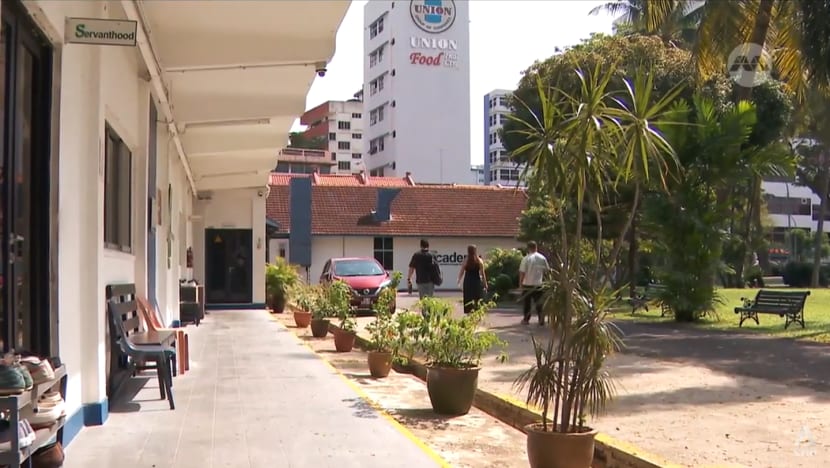SINGAPORE: New data from the Singapore Prison Service (SPS) showed that drug offenders in halfway house programmes are less likely to reoffend after they are released.
Among the latest cohort released in 2022, 23.5 per cent reoffended within two years – lower compared with the nearly 30 per cent who did not go through the programme and fell back into drug abuse, according to the government agency.
SPS said halfway houses help to keep offenders away from drugs, get them employed and help them secure a place to stay.
About 60 per cent of halfway house residents secure jobs, vocational training or education during their stay and 98 per cent are able to find accommodation before they are discharged, said SPS.
HELPED BY HALFWAY HOUSES
At The Helping Hand, ex-resident Mr Chan Ah Chin, who graduated last year, is giving back to the halfway house, which he credits for turning around his life.
The 59-year-old said the programme was much better than other forms of rehabilitation, following multiple incarcerations, as it supported him in taking up new courses.
“There’s no more going back to the old times taking drugs. All the staff, quite good (to) me. Some teach (me) how to do things, how to respect people,” he said, adding that his 96-year-old mother is overjoyed with his rehabilitation.
He now works as a security guard at the facility, hoping to set an example for residents like 48-year-old Jack – not his real name – get clean and reintegrate into society.
Jack, who is going through his fourth rehabilitation and a 20-year battle with drugs, told CNA he did not want to disappoint his family anymore.
“My parents are getting older. I would really want to spend my time with them … because they have always been there for me,” he said.
This is Jack’s first time in a halfway house. He hopes the programme, which he said has taught him life skills, will help him find a stable career in F&B when he completes his sentence.
Like Jack, Aaron – also not his real name – who is at HCSA Highpoint halfway house, hopes the programme will assist in keeping him on the straight and narrow after being incarcerated seven times.
The 55-year-old credits the dedication of the staff in encouraging him to turn the page on his past.
He said their support never wavered even after he left the halfway house prematurely, discharging himself in January last year after he was suspected of possessing and consuming substances.

Aaron returned to HCSA Highpoint four months later after seeking detoxification treatment at the National Addictions Management Service.
The clinic, which was set up at the Institute of Mental Health with the support of the Ministry of Health, provides treatment for people with addictions.
“(If) I go back to drugs, I have to lose a lot of things – my family, my loved ones. I hate this drug. Frankly speaking, I am really sick and tired of this,” he told CNA.
FLEXIBLE BUT STRICT LIFE
Inhabitants of halfway houses are given more freedom than those in prisons but they must abide by firm rules involving discipline and punctuality, following a compulsory curfew and a strict schedule.
Some are given the flexibility to leave the premises for educational classes, skills training or work, and may even go home on weekends to see their families.
This is dependent on their external family situation and if there is an employer or organisation providing work or training.
SPS officers and halfway house staff members conduct surprise urine tests and regular checks for controlled drugs and contraband including alcohol, cigarettes and vapes. All…








